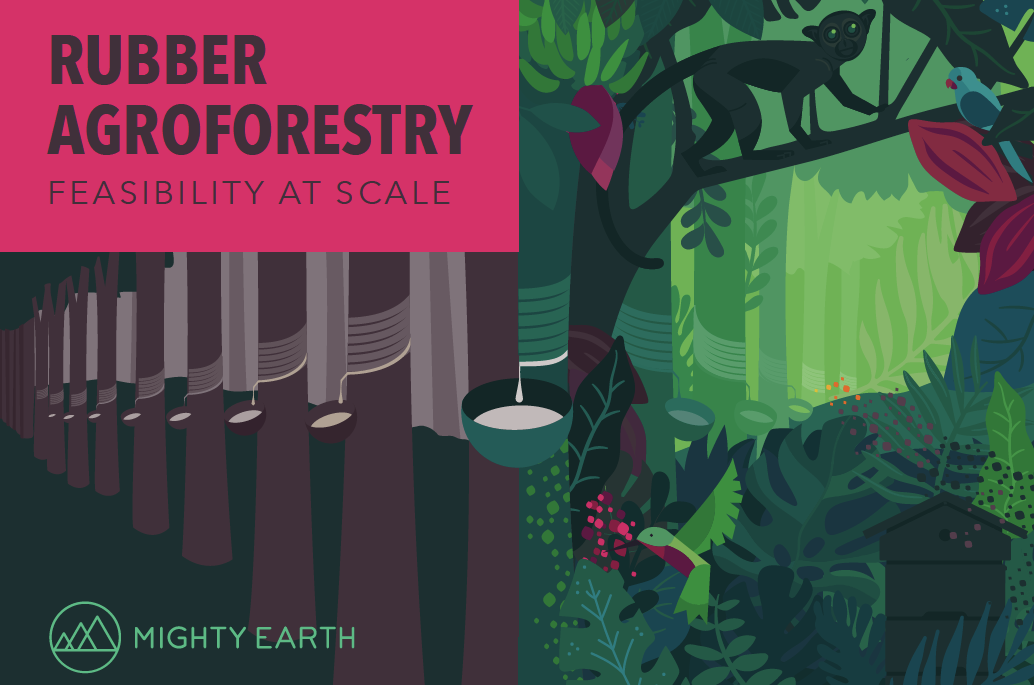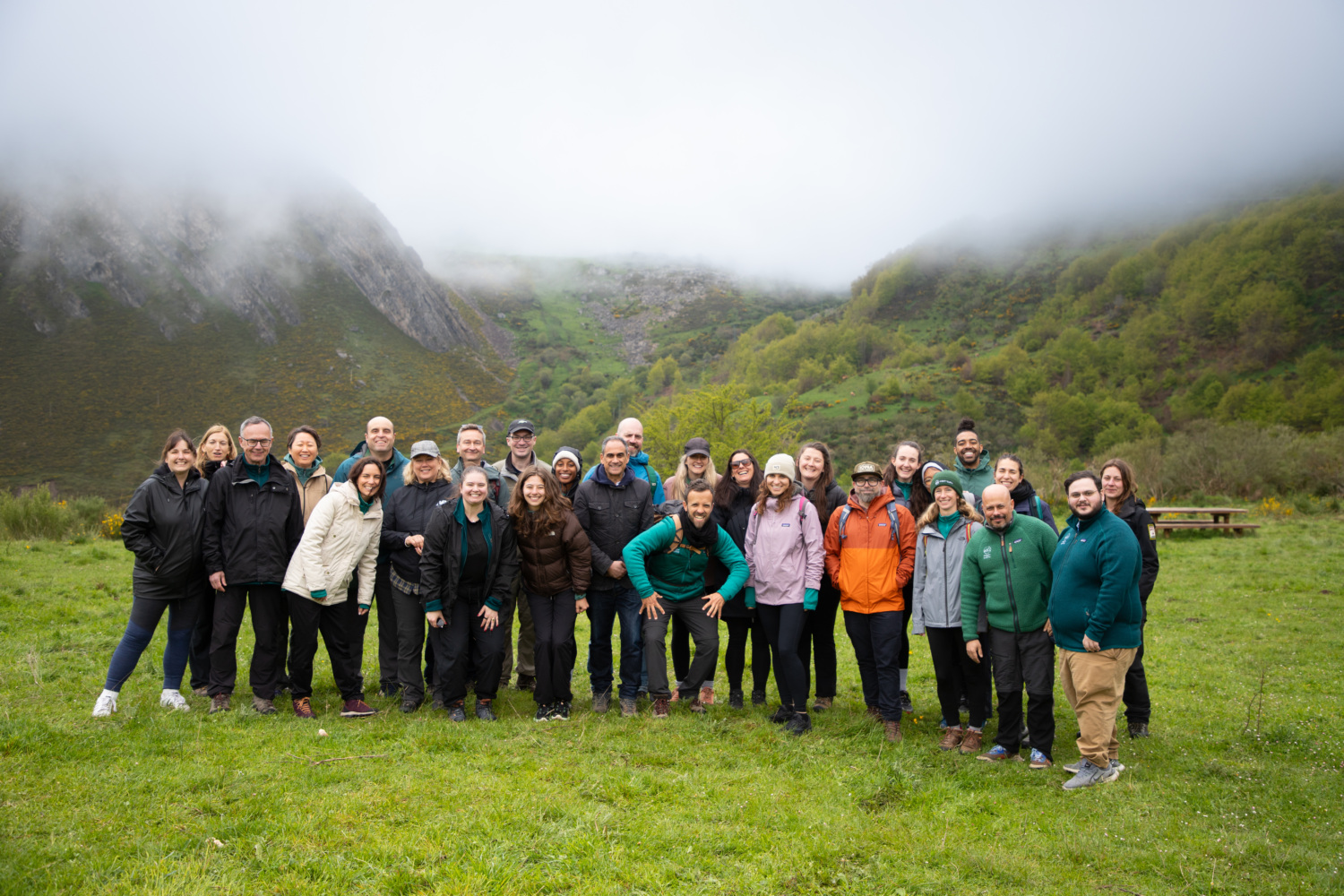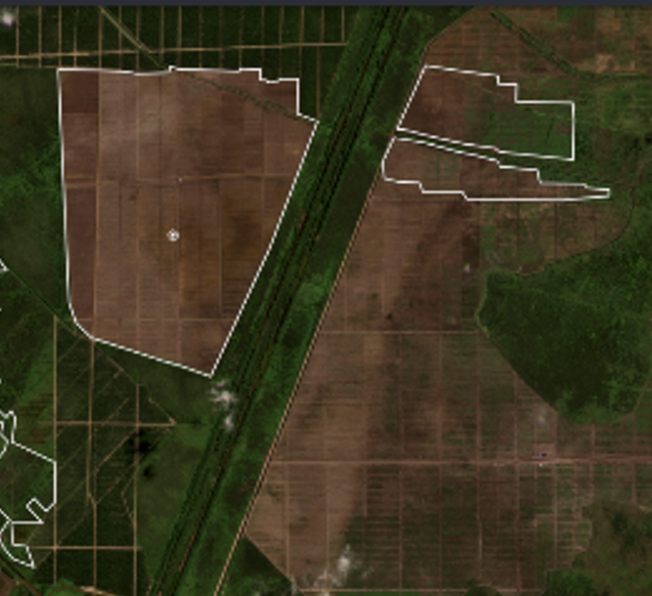
New Mighty Earth Report Finds Agroforestry Drives Sustainability in Rubber Supply Chain
Switching over from monocultures to more diverse systems of rubber agroforestry can drive sustainability in global rubber supply chains and help tackle climate change, finds a new report published by Mighty Earth today (see the summary here).
Mighty Earth’s report, co-authored by three leading academic scientists, found that rubber agroforestry – a set of mixed farming systems involving the production of rubber trees alongside a variety of other plants, crops and livestock – has multiple benefits for smallholder farmers, biodiversity and the environment, including:
-
- Better support for smallholder incomes and livelihoods
- Better support for smallholder food and nutrition security
- Social advantages for smallholder farmers and rubber tappers
- Improved soil health and water quality, and other beneficial environmental, biodiversity and climate resiliency outcomes.
The new study for Mighty Earth assessed over 800 peer-reviewed scientific reports and papers on rubber agroforestry worldwide and was conducted by a team from the Global Agroforestry Network (GAN). Natural rubber – which is used in products from tires to condoms – is predominantly grown in the tropics in Asia. About 90% of natural rubber is produced by smallholder family households, largely in monoculture systems where rubber trees occupy all the available farmland.
However, monoculture rubber poses increasing environmental and climate problems, including widespread pollution and degradation of soils and water resources, rampant deforestation, habitat loss and ecosystem destruction, as well as risks to rubber tree health from disease, pests and drought, plus growing vulnerability to climate change. In addition, smallholder households face potentially catastrophic threats to their livelihoods due to fluctuations in global rubber prices.
Drawing on a geographically diverse set of studies on low-input rubber agroforestry and intercropping systems, ranging from China to Indonesia, Sri Lanka, Thailand, India and Cote d’Ivoire, the authors reveal the multiple livelihood, environmental and climate benefits of rubber agroforestry, and highlight the need for greater support and incentives from Governments, the rubber industry, researchers and civil society to accelerate the widespread scale-up of agroforestry through smallholder farmer-to-farmer networks.
Please find a GPSNR report launch webinar and slide deck presentation on Mighty Earth’s agroforestry report findings.
###
Notes: The report, “Rubber Agroforestry, Feasibility at Scale” was authored by:
- Maria Wang Mei Hua, Grantham Centre for Sustainable Futures and Department of Animal and Plant Sciences, University of Sheffield, UK
- Dr Eleanor Warren-Thomas, School of Natural Sciences, Bangor University, UK
- Associate Professor Dr. Thomas Cherico Wanger, Sustainability, Agriculture & Technology, Westlake University, China; Agroecology, University of Göttingen, Germany


